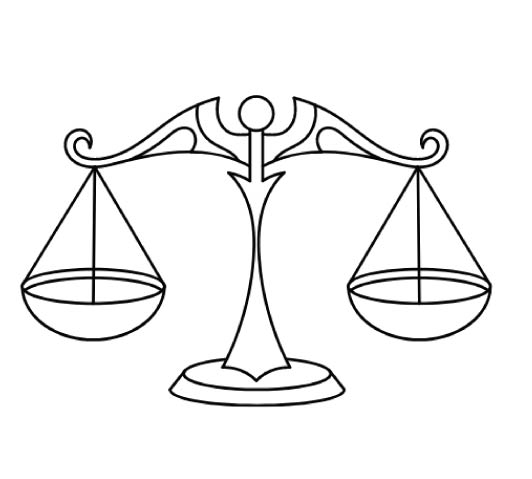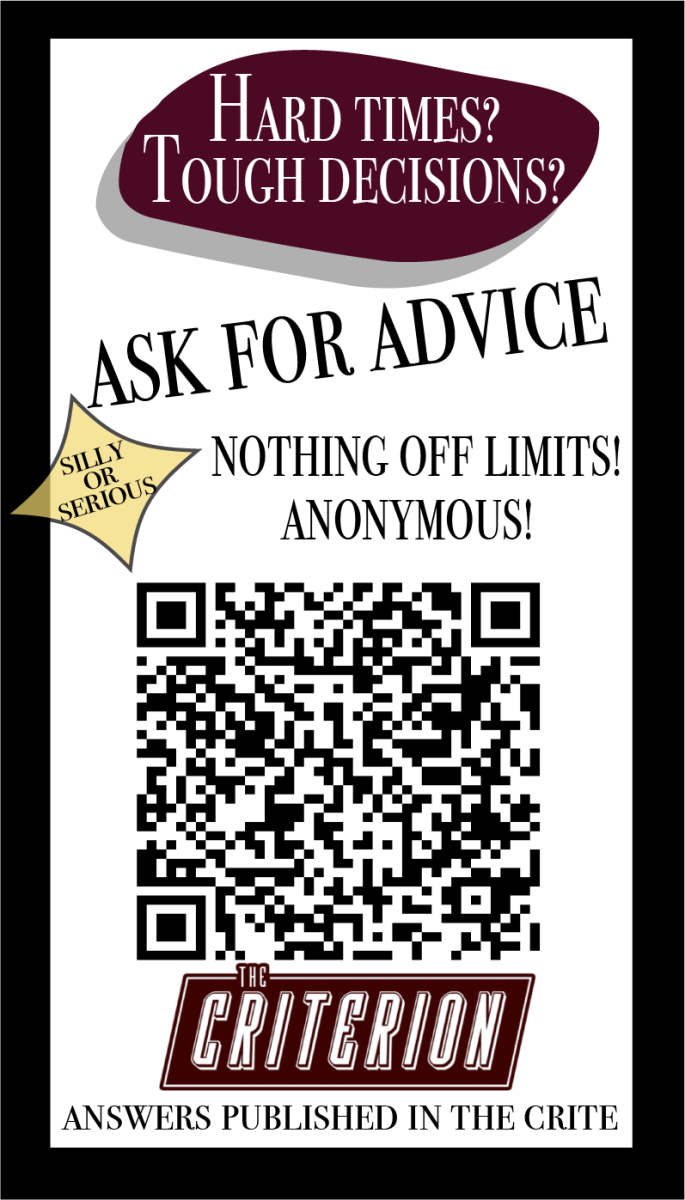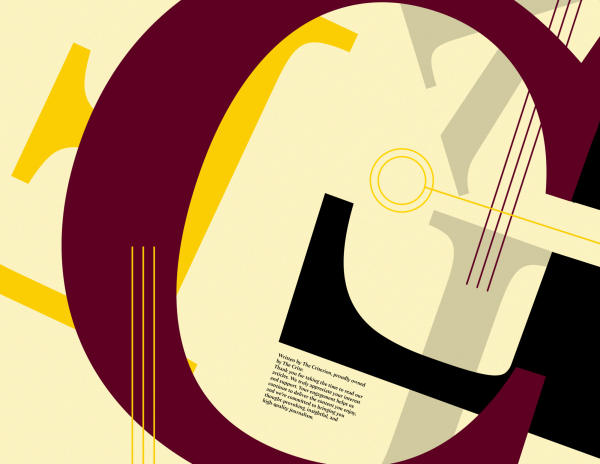by Wonder Wachara
In a speech given in late June, former President George Bush remarked, “Too often, we judge other groups by their worst examples while judging ourselves by our best intentions.” It was in the spirit of this poignant and powerful sentiment that I, having every reason not to, decided to attend a Donald Trump rally on Tuesday, Oct. 18 in Grand Junction.
Admittedly, although I am a conservative, up until that point I had no intention of trying to understand Trump or his supporters. I did not have the best opinion of them, and this was only justified by my feeling that most of them did not have the best opinion of people like me. However, I decided to wipe my mental slate clean and directly confront my own assumptions.
Despite having good faith in my fellow conservatives, I still had to take some precautions. Knowing fully well that the color of my skin, my gender and the foreign accent might draw unwanted attention from some. I made every effort to minimize myself. I wore neutral colors, no jewelry, put my hair in a ponytail and wore sunglasses to avoid misplaced looks or misunderstood eye contact.
However, it would soon become evident that all my efforts to conveniently package myself were futile. No amount of preparation could have obscured my six-foot stature or covered the deep brown earth tones that endow my skin. My efforts to remain a silent attendant were belied by the statement my presence made. I could not conceal the beautifully foreign and powerfully feminine twists that crown my head and cascade down my back. And though I carried no physical weapons, the confidence in my step and pen in my hand marked me as an observer, which made me a foe in a crowd that deeply resented the media. Despite a lack of provocation on my part, my unalterable physical features made me the target of racism that afternoon.
At the outset, my goal was simple: To see for myself what democracy in action was like (and get some extra credit, of course). As a political science student, this was a valuable experience I was excited for. I had never seen a president before, but I was content to settle for a nominee. Though I had been skeptical of Trump from the beginning, and quite frankly, disappointed in his nomination, I am politically conservative and was intrigued to see him for myself.
I pulled into the Grand Junction Regional Airport and was greeted by almost 5,000 community members that had turned out to see their nominee for president. As far up and down the line as I could see, there were no people of color present. I became nervous and considered turning back, but I had already come this far and wasn’t going to let baseless fear hold me back.
As I walked towards the line, I kept my head down, and avoided eye contact – this accomplished nothing. I joined two of my classmates that had saved me a spot in line and took off my sunglasses just in time to make eye contact with an elderly gentleman glaring at me. I turned around and braced myself: I knew what was coming.
“Excuse me,” he said in an unfriendly tone I had heard too many times before. I didn’t look back. I tried not to acknowledge him, hoping he would let it, whatever it was, go. I stood there hoping desperately I would be wrong, hoping desperately that my classmates wouldn’t have to see this. “Excuse me, ma’am,” he said, louder this time. I heard two short steps right before I felt a slight push on my shoulder. At this point, I had no option. I turned around to face him, but when our eyes met the look on his face wasn’t curiosity, it was disgust.
“You need to go to the back of the line where you belong.” I opened my mouth to reply, but he had no intention of listening to me. In his mind, he wasn’t seeing the unthreatening, visibly confused college student in front of him – he was standing up for something. To something. To people like me.
“You don’t get special treatment here, you people always want privileges.” He continued, much to the approval of those around who nodded in affirmation. My classmates instantly jumped to my defense, trying to reason with him, but he could not be reasoned with. He was intent on quite literally putting me in my place. “You can’t just cut in line,” he said, moving closer to me, and eventually, physically pushing me out of line. “I’ll call the cops on you” he threatened, and at the mention of police, my emotions betrayed me and my face laid bare my fear. As soon as he noticed this reaction, he smiled for a brief moment that’s when I knew this was not about me cutting the line.
I took a deep breath, raised my hand, and replied: “I’m sorry if I offended you, sir, I’ll go to the back of the line.” My classmates were visibly disturbed by what they had just seen, and beyond that, angry that he had gotten away with this. This was maybe one of the few times in their lives that they had witnessed firsthand the disturbing reality of racism and I felt sorry for them because they were unprepared.
I fought this fight every day and understood that when you are a person of color, a minor evasion of social conduct such as cutting in line is treated with the same harshness as a formal breach of law because, in all reality, social codes of conduct are not a suggestion for you. They are the laws that govern your world and the slightest misstep can come with the same repercussions as a breach of the law. Having lived on a college campus with people my age for almost two years, I had forgotten the rules. I was careless, and in the real world when you’re a person of color, being careless at the wrong time can costs you much more than just a spot in line.
I thought about this as I was forced to make the shameful walk to the back of the line. I looked back and saw the satisfied expression of the man in line as he watched me: he had won and he knew it. Upon seeing this, I felt an old, visceral rage that I had not felt in a long time surge through me and cloud my mind. A rage that many people of color who have experienced injustice spend an unnatural amount of energy daily to keep dormant. A rage which only racism can awaken.
I couldn’t believe that in 2016, racism was still alive and well and being socially reinforced. What bothered me was not that he did it, what bothered me is that he felt safe doing it because he knew that nobody would come to my aid. Not one person batted an eyelash when he pushed me because they all agreed. My classmates and I were alone, and he knew it.
I was so consumed with my thoughts that I almost didn’t notice when a lady who witnessed the incident motioned for me to join her and her husband in line. When I finally did, I graciously accepted but they kept looking back to see if the elderly man or anybody else had taken note of what they had done.
They were so nervous about it, they didn’t notice people coming through the line and stepping on me on purpose, or the nasty looks I was getting from all sides, or the faint whispers of crude words and racial slurs on the lips of those around us. As we continued through the line, I wondered silently what it would take to get people to speak up in the moment and not to be content with offering small gestures of conciliation after the fact.
When we finally entered the rally, the couple and I became separated, and all of a sudden it dawned on me how completely alone I was in that moment. As I walked around I got the same look that I had gotten from the old man from many more faces: pure disgust.
Just then, Donald Trump walked on stage and the crowd went wild. I looked up at him as he was waved into the crowd and realized that no matter how hard he tried, he could never understand what I had been through to see him. He couldn’t understand what it meant that I was there. If he became president of the United States, he would not be capable of empathizing with my experience and that of people like me.
As he began speaking, his effect energized the crowd and not in a good way. His words were a fire that had ignited the room and we the people were left there to burn in the flames of misplaced resentment and hatred. He egged on the crowd in its intensity and the more he spoke, the less safe I felt.
In this environment, my physical attributes had made me a natural enemy. It didn’t matter that I was a conservative – I was one of those people and that’s all they needed to know. At that moment, I looked up to find a man angrily glaring at me and read the word “n***er” on his lips. I Iooked in the other direction just in time to see another woman spit on the ground beside me wearing the same expression. Up until that point, I had dismissed the chants, the crude words, the slurs and the stares directed at me as the grain of salt that came with being closed minded, but this was too much. There was nothing Donald Trump could say or do that would make this worth it. There was no amount of extra credit that could make up for this experience.
I composed myself and made my way to the exit as fast as I could, holding at bay the tears that were surging up inside me. I wanted to weep for these people, this community, this country. I wanted to weep for all the Americans who had been so hopelessly, tragically, deceived and exploited by politicians who wanted nothing to do with their lives and their problems. I wanted to weep for those who had been tricked into believing that our progress is completed and that experiences like mine didn’t exist because racism didn’t exist. I wanted to weep for the children that would be raised to believe in freedom and justice and equality only to find that the application of those things could be limited by who you are. I wanted to weep because at the end of the day, those people who had treated me this way would go back out in the community, to their professions and bring their bias with them. This was my community, this was my home for the next two years and as soon as I got in my car, I wept for it.
For those who will condone any number of flaws in our leaders if they promise economic prosperity, and accept injustice on any level in our society or community for better socioeconomic status, I say this: Time and time again, the American people have been told by politicians that change is coming. That the dawn of a new era is upon us, and that it’s going to start in Washington. This is far from the truth. Washington is merely a projection of America and will not change unless we do. The revolution doesn’t need to happen in the capital, it needs to happen in the streets and in our schools, and in our churches, hearts and minds. The honest truth is, we only get the government we deserve, and unless we change to merit the kind of governance we want, our demands will not be met.
Not every step forward is a step up towards our goals as a country. It is not personal gains that mark progress, it is the value of our freedom. The reverend Dr. Martin Luther King Jr. once stated that Injustice anywhere is a threat to justice everywhere. Any place that is a safe zone for injustice or any individual that perpetuates it is a direct threat to every American’s safety and freedom, and that is quite simply “unamerican.” You can be many things and be president of the United States, but what you cannot be is unamerican.









Paul Anderson • Feb 12, 2017 at 11:27 am
So much of what you have said her and written here needs to be said. I appreciate the honest and forthright way that you said it. I underscore much of what you wrote but very much this statement. “Time and time again, the American people have been told by politicians that change is coming. That the dawn of a new era is upon us, and that it’s going to start in Washington. This is far from the truth.” In spite of some great strides and progress, there remains in the heart of too many the evil that spawns hate. Racism exists in spite of the denials. It will always exist for there will always be those who choose hate as a guiding principal in their lives. Sadly too often the accusation of racism by some is used as just another tool and the result is that it stokes up the hate and creates more racism.
Thank you again. You are wise and brave and we need people like yourself.
Kate Belknap • Nov 6, 2016 at 2:46 pm
Wonder,
As a faculty member at CMU and a resident of Mesa County I am appalled by what you had to experience at the Trump rally. Please know that you are valued and valuable.
Kate Belknap • Nov 6, 2016 at 9:35 am
Wonder,
As a faculty member at CMU and a resident of Mesa County, I am deeply saddened by the way you were treated. Please know that you have my deep appreciation and support.
Derek Dodson • Nov 4, 2016 at 2:36 pm
Wonder,
Thank you for your bravery in the face of such blatant adversity/racism. There does exist a community of loving, open minded people in this river valley. A community which is often shadowed by sheer hate and ignorance (such as that which you’ve witnessed). We are here for you and will not rest until true societal justice and equality has been achieved.
Wonder Wachara • Nov 6, 2016 at 3:52 pm
Thank you so much Mr. Dodson, Truly. This means more to me than you will ever know. The hardest part of experiencing injustice is feeling completely and utterly alone. It is such a relief to know that there are others in the community fighting for its greater good.
Stephanie Caiza Valera • Nov 4, 2016 at 11:30 am
As a citizen of Grand Junction, I would like to apologize to you for the way you were treated at this rally. I am deeply sorry for how you were treated. I was horrified by your story. Unfortunately, this is also how people of Hispanic origin are treated in this city as well. My deepest prayers are for a change.
Wonder Wachara • Nov 6, 2016 at 3:47 pm
Thank you for your prayers, they are much needed. It is an unfortunate reality, but I am of the mind that it is not an impermeable one. In the short time I have lived in this community, I have come to recognize the unique strengths and American ingenuity embodied in its culture. I have no doubt we can change for the better.
Bill Hilty, MD • Nov 2, 2016 at 9:38 pm
Wonder,
You are so brave. You are a beacon of powerful light in our often myopic Western Colorado community. Thank you for writing so eloquently and sharing your experience. Injustice anywhere IS a threat to justice everywhere. “The arc of the moral universe is long, but it bends toward justice.” You are someone who helps bend it. I’d enjoy meeting you for coffee or tea and talk.
Wonder Wachara • Nov 6, 2016 at 3:38 pm
Thank you so much for the complements, I’m truly flattered. I too would like to meet. my email is [email protected] if you would like to get in touch.
Sarah Swedberg • Nov 2, 2016 at 5:30 pm
Wonder, I will keep working to make this a better place and a better community. You are always welcome to come and talk to me.
Melinda J. Scott • Nov 2, 2016 at 3:40 pm
I’m am so proud to know that someone as brave and as eloquent as Ms. Wachara is a member of my community–both on CMU campus and beyond it.
Her experience as described in her article left me aghast, and deeply ashamed of the local citizenry. I really thought that Grand Junction had joined the 21st century in upholding ideals of equality and justice for all humans. I am chagrined to know this isn’t so.
I resolve to speak out when I witness discrimination of any kind perpetrated on a fellow soul–whether I know that soul or if they are a stranger.
Thank you, Ms. Wachara for sharing your experience. It moved me and I hope to be a better person because of it.
Wonder Wachara • Nov 6, 2016 at 3:34 pm
Thank you so much for your solidarity, it means more than you will ever know <3